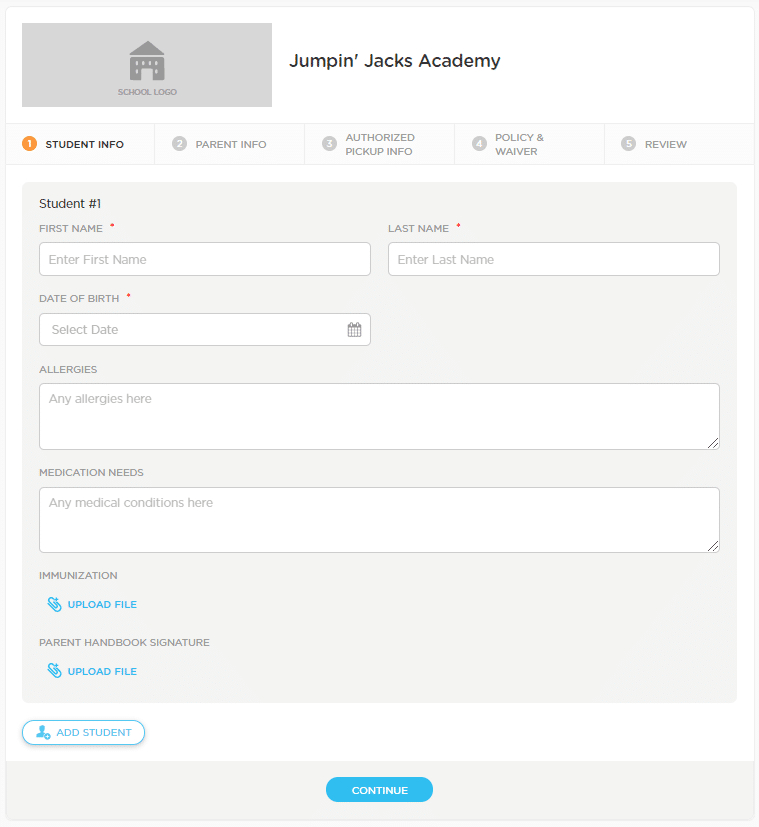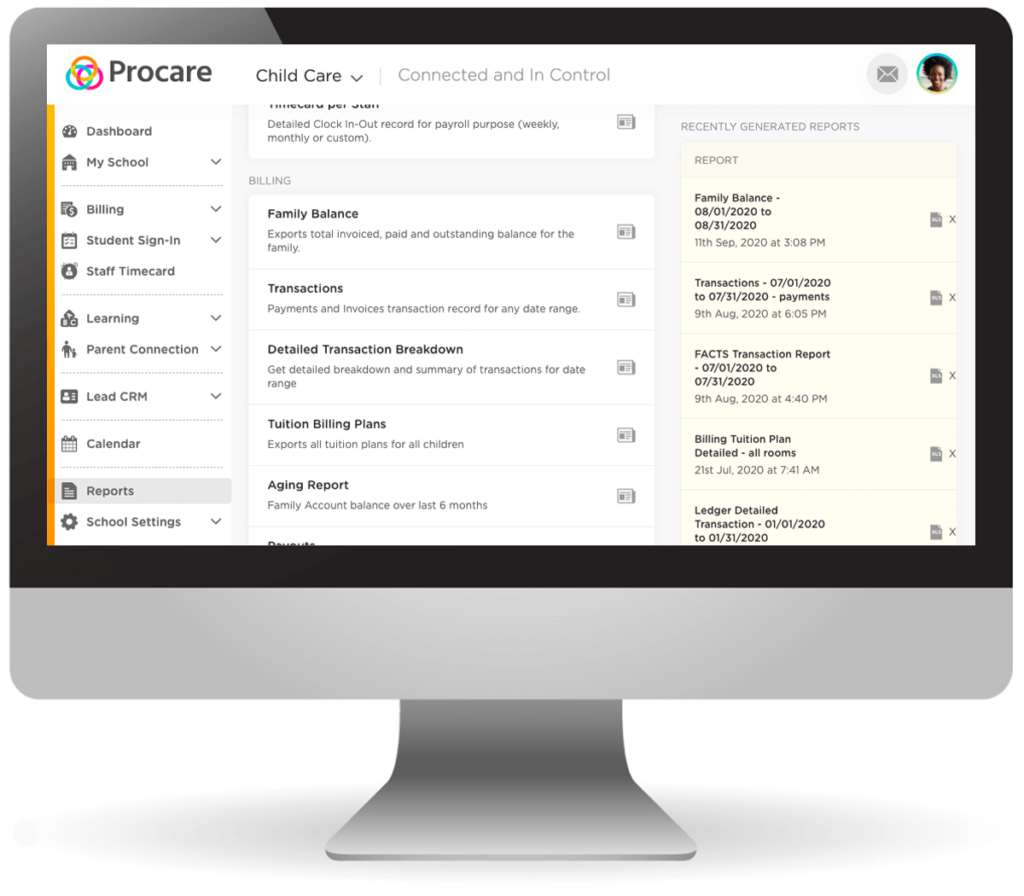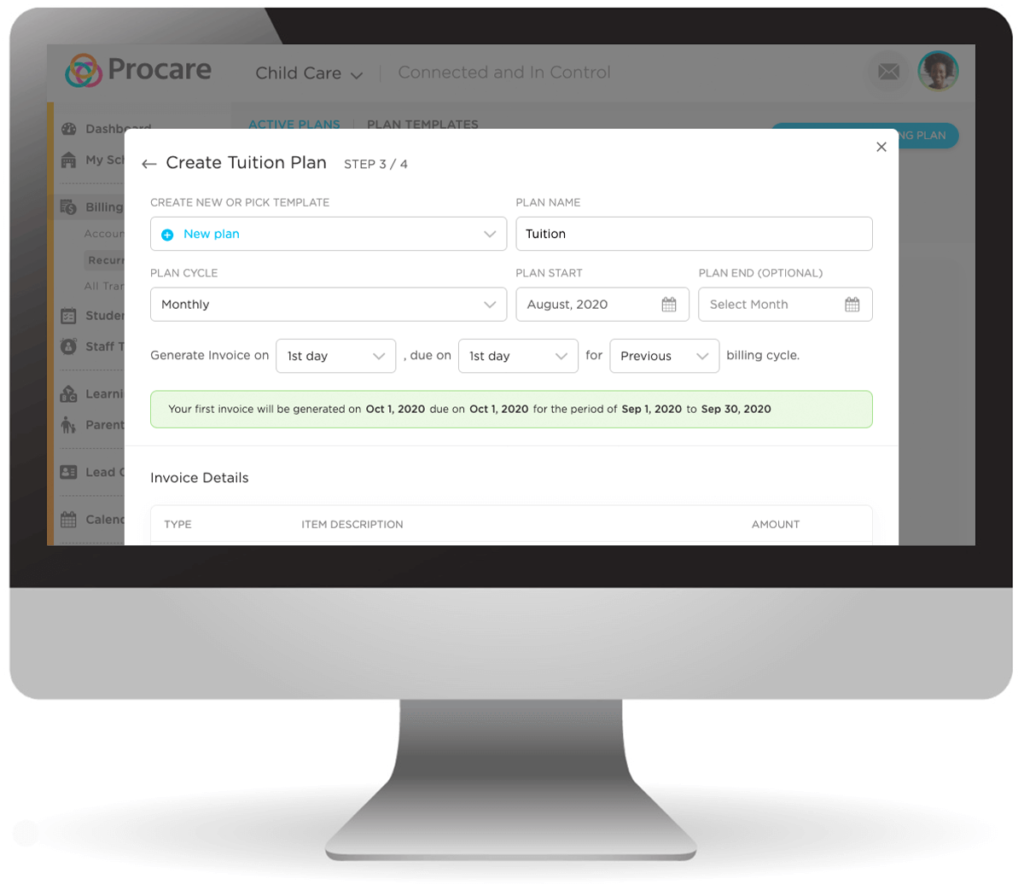
The child care industry has been hit hard by the pandemic, but many centers have been able to weather the challenges by leveraging basic business principles and technology. In Procare’s latest webinar, Evelyn Knight, the Childcare Business Coach and the founder of Child Care Business Professionals, provided child care business hacks centers can use to better navigate our current environment.
“First, I want to acknowledge the challenges we’re all facing, and provide some hope that we can get through this,” said Evelyn. “I went through an incredibly rough period where there was an eviction notice on my center’s door, and by teaching myself some basic business principles, I was able to not only keep my business afloat, but now I have a waitlist of 300.”
Evelyn focused on three key areas where centers can make relatively small changes to see big results: Growing Enrollment, Building Relationships and Understanding & Improving Your Financial Picture.
Growing Enrollment
Hack #1: Virtual Tours

“One of the biggest issues I hear about from the clients I work with is ‘inquiry to enrollment’ or said another way, the ability to ensure interested families end up enrolling,” said Evelyn. “That’s why virtual tours are so important – not only do they give parents a view into what your center is all about, but also, they’re a way start building a relationship with the family.”
Here are some important elements to think about when doing virtual tours:
- Website registration. Most parents of young children are millennials, and they expect the ability to do everything they need online. Make sure you have an online form on your website for virtual tours, so you’re not going back and forth with parents on email or over the phone to get something scheduled. There are some free tools out there like Calendly, Acuity, etc. You can also take it a step further by using more comprehensive child care management software that covers online scheduling.
- Confirmation/Follow-Up. It’s not just about a parent booking on your site – you need to follow up with them to confirm the details of the virtual tour and ensure they’re comfortable with the platform you’re using. In some research Evelyn did, she found only 20% of centers follow up. To put that into perspective, if a family visits five centers, only one is following up, and chances are, that’s the one the families will pick.
- Live attendance. There are multiple ways and platforms you can use to do a tour (Facetime, Skype, Google Meet, Zoom, etc.). The key is that your tour requires live attendance – even if you decide to prerecord the tour. This creates an opportunity for higher engagement and helps you start building relationships at the outset. Do not just post a video to your website.
Something to note: if you do a live tour, make sure you practice it first. Know the areas you want to highlight and the areas you don’t (i.e. an area where you might have a bunch of boxes stacked up). This is their first impression, so you need to be strategic. Some areas to focus on when you give your tour (or make your pre-recorded video):
- Safety protocols – show your physical security protocols (i.e. automatic door locks, keypad entry, contactless check-in, etc.)
- Health protocols – highlight the measures you’ve taken to support a healthy learning environment (i.e. handwashing stations, limited interaction with other rooms, rigorous sanitation procedures, etc.)
Hack #2: Online Registration

Registration is an important part of what’s called the customer journey, and it’s a critical step to building your enrollment. When it comes to registration, and frankly every aspect of your business that requires interaction with parents, it should be available online. Parents don’t have time to visit centers physically to fill out registration paperwork, and who wants to when we have COVID concerns as well? This is part of the first impression they have of your center, and the last thing you want to do is appear unaccommodating or disorganized.
Make the form prominent on your website. Put it on your home page. But there’s even more you can do to simplify the process:
- Integrate with CRM software. Online registration can really pack a punch in terms of simplifying your job when it integrates with a customer relationship management (CRM) software. What does that mean? It means that once a parent fills out the form, it’s fed into the CRM system, which can help you schedule phone calls and automatically schedule follow-ups and email reminders. Automation is key here, because it can address the biggest pain points you’re having, such as lack of time, manual processes, etc.
- Make it comprehensive. Nobody likes to fill out forms, but if your registration is connected to a CRM and even better – a child care management software platform – all the information you have parents fill out gets populated automatically. Parents love it because they don’t have to fill out the same forms multiple times and it makes your life easier because you don’t have to manage the process over and over again. A little extra time on a form on the front end can save a lot of time on the back end.
Building Relationships
Hack #1: Transparency

Transparency builds trust, and makes employees feel that they’re working for a company with higher ethical standards. When transparency is added your culture, staff will be more engaged and committed to the vision of the business. Here are some areas to focus on:
- Clear policies/procedures. When you’re dealing with children day in and day out, there’s no room for ambiguity. Make sure your policies are clear, and that everyone on your team understands not only what they are, but WHY. Same goes for parents. Often times we’ll announce new policies, but we don’t explain the purpose behind them. In today’s environment, this is especially important given the changes we’re seeing around COVID-19. Policies and procedures continue to change depending on the situation, so it’s important we’re all on the same page to ensure we can serve the children in our care to the best of our ability.
- Communicate openly and often. This is critical, particularly given changing policies/procedures. There are a lot of unknowns these days. That’s why frequent updates to both staff and parents are critical to maintain the level of trust you’ve no doubt worked really hard to build. In times like these, it’s better to over communicate than under communicate.
- Hold regular stand-ups. This is important for building a trusting culture. When you have regular stand-ups with your staff, you’re showing them that you want them to not only be in the loop on center happenings/policies/issues, but also, you’re giving them an opportunity to share their insights and feelings on certain matters. When staff feel like they have a say in things, they’re more invested and committed to your mission.
Hack #2: Parent Engagement

Parents want to be immersed in their child’s day – especially now, when they can’t see their child’s experiences in person. They want to feel better about leaving their children in external care. That’s why parent engagement is critical.
What does that look like, exactly? It’s about meeting parents where they are and connecting with them on a regular basis. The more you can communicate with parents, the better – no parent will ever tell you you’re sending too many photos or telling them too much information about their child’s day. There are a variety of opportunities to connect with parents:
- Photos/videos: Share videos and photos with parents as much as you can – remember, parents can’t be there in person, so you need to bring them along.
- Daily activities: Include what children are learning at your center. Parents can use this information to reinforce your teachings through meaningful conversations with their kids.
- Milestones: Parents need guidance on how to identify achievement of learning milestones and ensuring they rank well vs their peers. If this doesn’t happen, they can feel from or unsure about their child’s progress and worry about delayed intervention. Regardless of how young the children might be that you serve, you should use milestones to chart their development and communicate their progress to parents on a regular basis.
- Newsletters: If you’re not doing a newsletter, you should think about implementing one. Parents love to have all the information they need to know in one place vs. having to sort through a bunch of emails.
- Events: Having a crazy hair day? There’s nothing worse than parents who don’t get the memo and feel really guilty that their kid is the only one not participating. Communicate events in your newsletter and make sure to send out reminders.
- Surveys: Survey parents regularly to understand their perspectives on policies, activities, etc. Not only does it provide you with valuable insight you can use to inform your business strategies, but also, it gives parents an opportunity to be heard and feel like their opinion is valued.
Understanding & Improving Your Financial Picture
Hack #1: Automated Reports & Data

Figures from Opportunities Exchange show how much time you can save when you reduce or eliminate manual business processes:
| Attendance tracking/subsidy billing | 10 hours/week |
| Waitlist management/Enroll new families | 6 hours/month |
| Payroll/HR tracking | 6-8 hours every two weeks |
| Tuition billing/Tracking | 10-12 hours/month |
| TOTAL | 48-54 hours/month |
48-54 hours is a lot of time you could be spending on the kids in your care. This is why it’s key to automate processes and receive actionable data when possible:
- Attendance. When you integrate whatever check-in/out method you’re using with a child care management software, you can easily monitor attendance and customize charges based on room, day and time. You can also add charges for late pickups. This also helps you monitor attendance trends and help you plan for additional marketing/recruiting efforts if needed.
- Scheduling. It can be a nightmare to schedule slots – particularly if you’re offering multiple time slots per day. But, it’s also an amazing opportunity to help you generate more revenue. With a CCMS, you can pull attendance and scheduling data to see how you can slot more children into spots and maximize your revenue.
- Payroll. Having clear data around payroll is critical. When the PPP loans became available, payroll reports were one of the key items needed to secure the loans.
Does this really make that much of a difference? According to the same data referenced in the table above, you can reduce 48-54 hours of work per month to just 5.5 hours/month with automation.
Hack #2: Contactless Payments

Collecting tuition payments in a timely manner – especially now that child care centers are seeing limited ratios and enrollments – is critical. Parents need convenience and flexibility when they pay tuition, including self-serve and mobile options. This is especially important in today’s environment.
Through the right payment processing platform, centers can facilitate payment methods that are not only contactless, but also greatly simplify the overall process of billing and invoicing, payment processing, and receipt and account statement creation.
Benefits include:
- Payment agnostic. Offers parents more flexible payment options (they can accept all credit cards, debit cards, allow for online payments, ACH, etc.)
- Next business day funding. Child care businesses operate on relatively low margins. Ask yourself, are you liquid enough to wait for three to five days for payment? By using a payment processor that has next business day funding, you can get your funds faster.
Added benefit: if the payment processor is integrated into your child care management system, it can save you even more time.
To watch the full webinar, click here.



